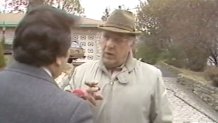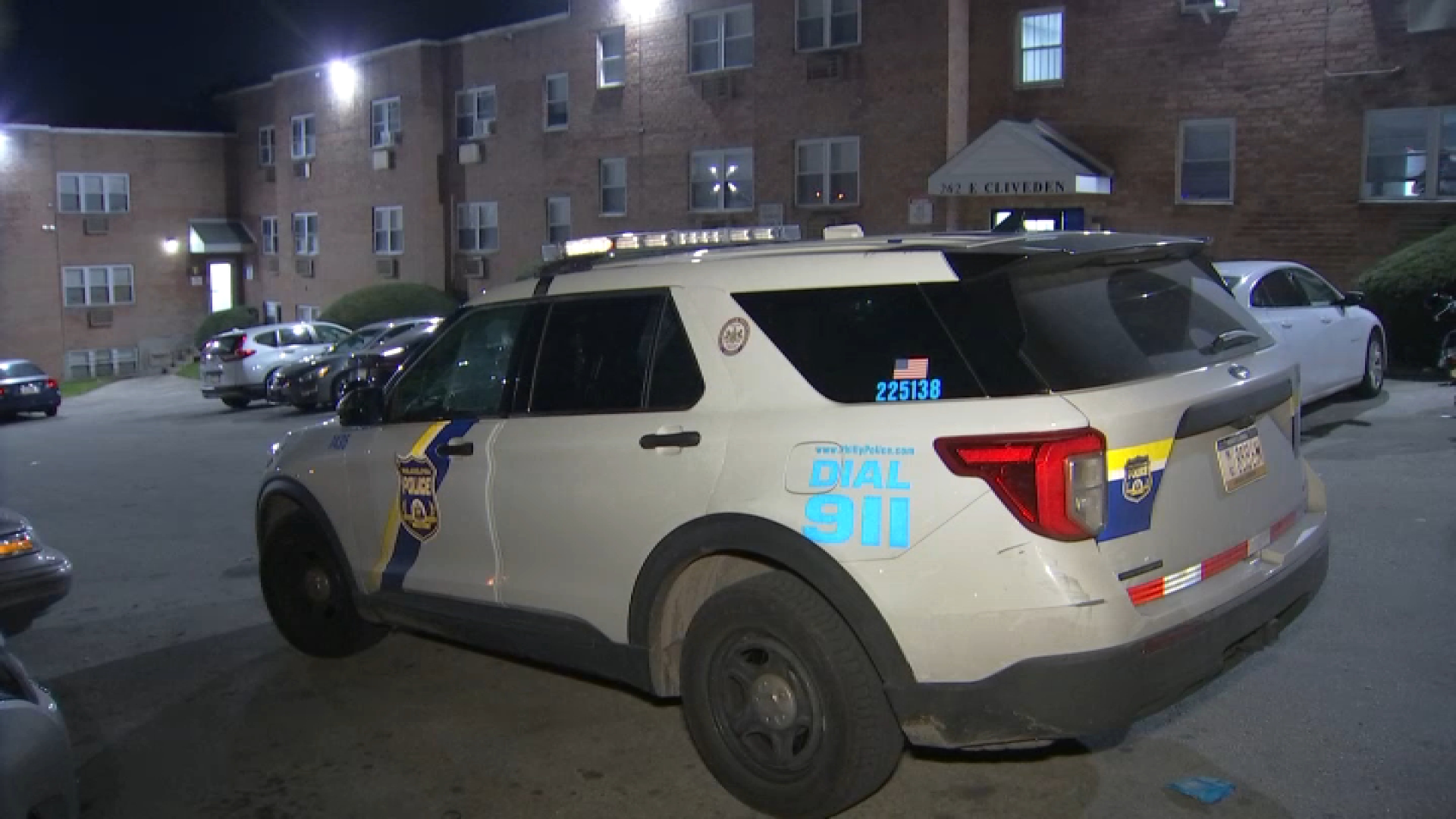Every so often, someone asks David Bohrman about his father’s legendary encounter with Frank Rizzo.
The sidewalk confrontation 37 years ago is one of the great moments in Philadelphia broadcasting, what they call “great TV."
The barrel-chested former mayor and police commissioner tells Stan Bohrman, an investigative reporter with KYW at the time, to “scram.” When Bohrman persists, Rizzo calls him everything from “a crumb bum” to a “crumb creep lush coward.”
“My father was not a lush,” David Bohrman said in an interview Wednesday, chuckling at the thought. “It was a throw-it-out-there line. Rizzo had to throw out some kind of insult there.”
The video, which still floats around on several YouTube channels, is quintessential Rizzo — the hard-charging, big-mouthed icon of head-cracking 1960s and 1970s law enforcement in Philadelphia.
It provides some context to Rizzo's menacing, trench-coat-wearing bluster as protests have arisen in recent days about his legacy, along with calls to erase the most visible symbol of his reign over the city: a 10-foot-tall bronze statue across the street from City Hall.
By then 50 years old in the 1980 video, he offers to go behind a wall across the street from his house in Chestnut Hill and fight Bohrman and two other journalists at the same time.
Local
Breaking news and the stories that matter to your neighborhood.
“I’ll put my dog away and I’ll come back. And you got one, two, three,” Rizzo says, pointing at Bohrman and two others off camera, cigar in hand and fedora on head. “And I’ll do it alone with you, in the back of that fence. Just the three of us, four of us, me and you. Show you what kind of man you are. You’re less than a man. Ok? You’re a crumb creep. And I wouldn’t take that off of nobody. And there’s three of you, and I’m by myself. And when it’s over, there’ll be nothing to it. Win or lose, ok?”
Here's a portion of the heated exchange:
Removing the statue of a waving Rizzo from its prominent location outside the Municipal Services Building on John F. Kennedy Boulevard is gaining steam, thanks to support from a councilwoman, Helen Gym. The first-term Democrat tweeted Tuesday that “all around the country, we're fighting to remove the monuments to slavery & racism. Philly, we have work to do. Take the Rizzo statue down.”
Mayor Jim Kenney didn’t reject the idea.
"If there's a group of people or folks in the city who want to reconsider the placement of the statue, whether it be removed or relocated, that's up to them to go through the same process as the people who erected it," Kenney said.
It's not the first time activists have demanded the stature be removed. Last year, an anti-police brutality group called Philly Coalition for Real Justice petitioned for its removal.
Police on Wednesday and Thursday guarded the statue after a vandal pelted it with eggs.
Lowlights from his time as police commissioner include an incident in 1970 of officers raiding the Philadelphia headquarters of the Black Panthers and forcing the men to strip in public.
For those who knew and covered him, like former cop and retired Inquirer reporter Thomas J. Gibbons Jr. and NBC News correspondent Andrea Mitchell, Rizzo can't be easily compared to other politicians.
His bark included a bite, unlike President Trump's verbal attacks. And Rizzo doesn't belong in the same category as long-gone Confederate leaders whose statues are coming down across the country, Mitchell and Gibbons said.
“He is not by any means Robert E. Lee, or Chief Justice Roger Taney, who wrote the Dred Scott decision," said Mitchell, who began her career as a radio and television reporter for KYW during much of the Rizzo years. "He was a twice-elected mayor of Philadelphia, who was clearly controversial in his years as police commissioner. But from a distance, I would say he is not analogous to those Confederate leaders who tried to overthrow the government.”
Still, Mitchell said, she understands why some in Philadelphia want to debate Rizzo’s legacy, and its embodiment in a statue placed at the heart of the city on public property.
“This is a debate around the country. It’s a cultural and historical debate that is clearly coming to a head because of the president, and the really irredeemable things he said (Tuesday),” she said of Trump’s most recent statements regarding the violence in Charlottesville, Virginia. “For all of this flaws, Rizzo never publicly defended white separatists.”
Gibbons remembers Rizzo fondly for his tough policing, describing the 6-foot, 2-inch Italian American from South Philly as the guy who “when he entered a room, everything else stopped.”
He also is uniquely tied to the political and violent tumult of the late 1960s and early 1970s.
A day before the infamous raid and strip searches of the Black Panthers, Gibbons was shot three times, twice in the right arm and once in the back. The bullet in his back ricocheted through his abdomen, causing significant internal damage and four months in a hospital bed.
Six other officers were shot the same weekend as Gibbons in August 1970, including a sergeant who was killed.
Gibbons left the force in 1971 on disability and went on to spend 31 years as a journalist with the Evening Bulletin and Inquirer newspapers.
He said Rizzo was home in bed the night of the Black Panther raid and strip searches.
“If anyone should be faulted, it should be the commander at the Panther raids,” Gibbons said.
Mitchell said the future of the Rizzo statue belongs in the hands of Philadelphians.
“It’s a mixed legacy, but I’m just not sure,” she said. “You’d have to weigh the positives and the negatives. It’s a decision for the city and its people.”
His interaction with Stan Bohrman should be required viewing for local history buffs. Bohrman, who by 1980 had already spent the Watergate and Vietnam War era as a well-known interviewer and reporter on the West Coast, died in 1993. His popular Los Angeles-based show called “Tempo” included interviews with Sen. Eugene McCarthy, Dalton Trumbo and Sammy Davis Jr.
“He wasn’t intimidated by it. I think he was amazed that it went there, with the threat of violence,” David Bohrman said of the Rizzo interview. “That’s how he was. He rode with it.”

Moments before Rizzo finally walks off with his dog, he smirks at Bohrman — and the Philadelphia viewers he held as a captive audience for decades.
“You don’t even know me, Mr. Mayor,” Bohrman says after the barrage of insults.
“You are a lush, I can tell just by looking at you. I was a cop all my life and I know a lush when I see one. And you’re a lush,” Rizzo says. “You’re going to have a helluva story on that one. Play every word of it, crumb.”
About 30 feet away, before the video cuts back to Bohrman in the studio, Rizzo can be heard greeting a neighbor.
“Hello, how are you?” he says, as the trench coat shrinks into the background, out-of-focus.



